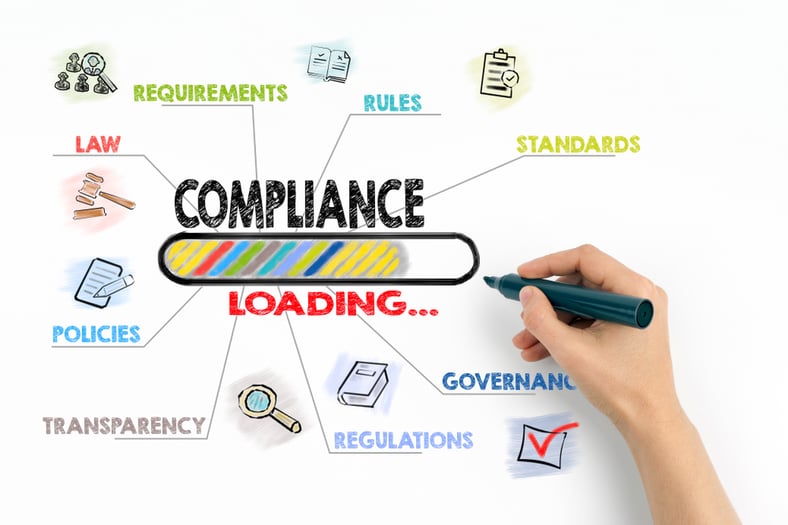Industry standard agreements provide common starting points for negotiations in equipment and services procurement. In construction, the American Institute of Architects provides standard agreement templates, as does the Association of General Contractors. However, industry standard agreements often are created by supplier associations with financial incentives that favor suppliers.

While these contracts may equitably establish negligence or failure to perform provisions, buyers need to exercise due diligence in reviewing and revising the contract to ensure fairness and mutual benefit.
Contract review can be a tedious, time-consuming, and costly manual process. Fortunately, modern solutions that leverage artificial intelligence (AI) can streamline contract review and negotiation, transforming how legal departments approach agreements.
How Industry Standard Agreements Were Negotiated in the Past
There are two approaches to negotiating an industry standard agreement:
- The standard agreement document is opened—usually in MS Word format—and legal staff reviews it to determine which items require deletion or revision to create more favorable terms. A company playbook can provide guidance on preferred positions, and reviewers may reference past agreements for discrepancies. After implementing any changes, the revised agreement is emailed to the other party for review. This process typically takes several weeks and multiple rounds of negotiation to complete.
- A blank document is created in MS Word, with legal teams extracting essential terms from the standard agreement, making the changes, and inserting the edited section. This can provide a faster and cleaner approach for some applications, but it still requires both parties to compare the documents, ensure changes adhere to company guidelines, and comprehend provisions within their specific context.
Key Problems with Industry Standard Agreement Review Processes
For years, legal departments have cobbled together a rudimentary technology stack for contract review using Adobe, Microsoft, and email tools because no platform existed that could streamline and automate the review and negotiation process. Two key issues made this patchwork review and negotiation process seemingly unavoidable.
Difficulty Finding Omissions
The chief concern with industry standard agreements is often not what is said, but what is left unsaid. For industries like construction, using a construction contract review checklist can help ensure critical clauses aren’t overlooked, streamlining the review process and reducing potential risks. Determining intentionally or inadvertently omitted material can require several hours of expert review. Senior-level attorney approval is typically required before the contract can be considered complete, and multiple rounds of internal review may be necessary to decrease risk and provide a remedy should issues arise later.
Difficulty Assessing Revisions
As the agreement moves between parties, reviewers must identify language that has changed, how it has changed, why it’s been changed, and what impact the changes are likely to have. Emails and calls for clarification cloud the process. A few altered lines could be inconsequential, but a reworded payment clause could have a massive impact. Without flagging, redlining, and risk analysis, the negotiating parties approach the task without any guidance.
The Advantages of AI in Negotiating Industry Standard Agreements
Recent advances in AI and Natural Language Processing (NLP) have revolutionized the process of negotiating an industry standard agreement. An AI-powered contract review and negotiation platform enables users to tailor negotiation to their company standards by uploading as few as 24 agreements to train the AI. Listed below are several advantages available to legal departments and procurement teams when they automate their contract processes with AI.
Increased Speed and Accuracy
The AI can consistently and accurately identify clauses and terms in the industry standard agreement that need modification and offer suggested revisions. After an agreement has been uploaded to the platform, a fully-redlined and reviewed contract is typically returned to the user in less than five minutes.
Streamlined Workflow
Corporate legal departments and procurement teams can leverage AI to significantly increase efficiency and productivity in their contract review and negotiation process. Some of the workflow advantages legal departments can look forward to when they transition to a platform like LexCheck include:
- Automatically implement suggested changes.
- Prioritize review time based on color-coded risk assessments.
- See all errors and missing clauses.
- Adhere to company standards with an AI Digital Playbook.
- Review contextual explanations for suggested changes.
Automated Contract Negotiation Process
Automated contract negotiation with AI allows legal teams to ensure terms and clauses reflect a company’s preferred positions. Likewise, the AI can flag and suggest playbook-compliant revisions for clauses where deviations from the standard typically occur. With automated contract markup and negotiation that strictly adheres to company guidelines, legal departments can communicate more clearly, enjoy greater transparency, and build trust over time.
LexCheck’s AI-powered platform automates and accelerates industry standard agreement negotiation for legal departments and procurement teams. To learn more, contact us at sales@lexcheck.com, or request a demo to experience the technology first-hand.
.jpg)
